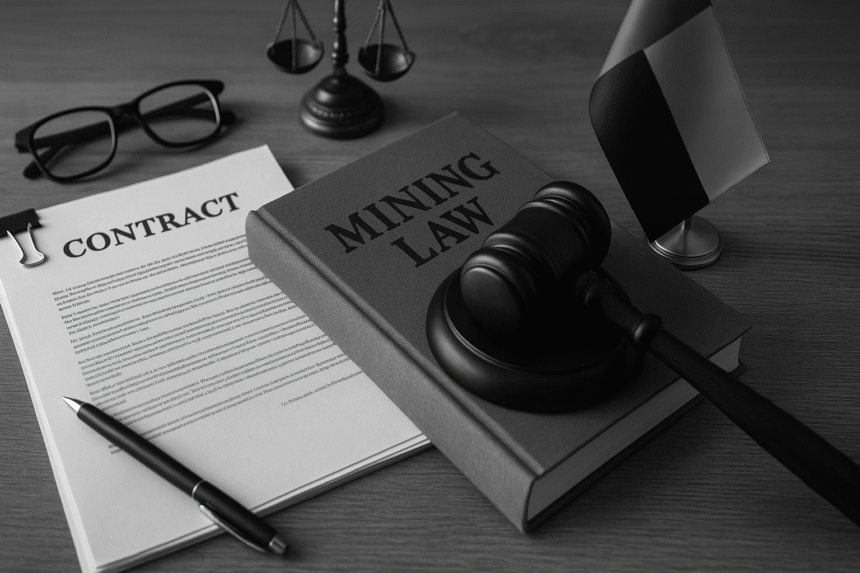Essential Legal Documents Every Mining Exporter Must Have for Seamless Global Trade
Introduction: Why These Documents Matter
Exporting minerals is not just a logistical or commercial task — it’s a complex process that demands strict adherence to mining export compliance regulations and well-prepared legal documents for mining exporters. Without these crucial documents, mining exporters face risks such as shipment delays, financial losses, fines, and even legal disputes. Whether you are shipping iron ore, copper, gold, or rare earth minerals, having all required paperwork ensures your mining export contracts are valid and your operations remain compliant. This foundation of legal certainty builds trust with international partners and customs authorities, smoothing every step of your mining export journey.
This comprehensive guide outlines the ten essential legal documents every mining exporter must secure to maintain mining export compliance and uphold robust mining export contracts.
Who This Is For
- Mining companies starting export operations
- Legal advisors working with mining exporters
- Export consultants in minerals and metals
- Investors or stakeholders in mining ventures
This list is especially useful when:
- Registering a new mining business
- Preparing your first export shipment
- Expanding into new international markets
1. Export License
An export license is a cornerstone document confirming your compliance with national and international regulations governing mineral exports. Without it, shipping minerals abroad is illegal. This license is issued by government authorities after reviewing company registration, tax compliance, and environmental certifications, all critical to maintaining mining export compliance.
Early application is essential because processing times can be lengthy, and delays can disrupt your legally binding mining export contracts.
2. Commercial Invoice
The commercial invoice acts as a contract evidence between exporter and buyer, detailing the shipment’s value, mineral type, quantity, delivery terms, and payment conditions. It serves customs authorities in verifying the shipment’s authenticity and ensuring mining export compliance.
Incorporate Harmonized System (HS) codes and Incoterms (such as FOB or CIF) to align with your mining export contracts and ensure smooth customs clearance.
3. Packing List
This document provides a detailed inventory of every package or container in your shipment. It facilitates customs verification to prevent fraud or smuggling and supports mining export compliance standards. Accurate packing lists are essential for honoring the terms of your mining export contracts, where product descriptions and quantities must match precisely.
4. Certificate of Origin
Issued by chambers of commerce or trade authorities, the Certificate of Origin authenticates where your minerals were sourced. Many countries require this certificate to enforce preferential tariffs or import restrictions, thus safeguarding mining export compliance.
Buyers and customs officials rely on this document to validate the legality of your shipments and reinforce contractual obligations in your mining export contracts.
5. Mining Concession Agreement or Lease
This agreement certifies your legal rights to extract and export minerals from specified mining sites. Customs authorities and international buyers may require it to confirm that your exports comply with local regulations — a fundamental element of mining export compliance.
Maintaining an updated, notarized concession agreement also protects your position in mining export contracts, demonstrating clear title to the exported goods.
6. Sales Agreement / Offtake Contract
Your sales agreement outlines the terms negotiated with buyers, including volume commitments, pricing, payment methods, delivery timelines, and liability. Incorporating clauses such as force majeure, dispute resolution, and governing law ensures your mining export contracts are comprehensive and enforceable.
Strict adherence to this contract is essential to uphold mining export compliance and prevent costly disputes.
7. Shipping or Bill of Lading (B/L)
The Bill of Lading is proof that your goods have been loaded for shipment. It also acts as a title document and receipt. Banks require this in letter of credit transactions.
Takeaway: Double-check the consignee and notify party details.
8. Insurance Certificate
This document verifies that the shipment is covered by marine cargo insurance. It protects your financial interests against loss, damage, or theft.
Takeaway: Confirm that your Incoterms match your insurance obligations (e.g., under CIF terms, exporter insures the cargo).
9. Customs Declaration Form
You’ll need to submit this at your local customs office to initiate export clearance. It typically includes export license number, Harmonized System (HS) code, invoice value, and shipping details.
Takeaway: Mistakes in this form cause delays. Review every entry twice.
10. Environmental & Compliance Certificates
Many jurisdictions now require environmental impact documentation, sustainability compliance declarations, or export permits from environmental agencies.
Takeaway: Keep digital copies ready for submission to buyers and government agencies.
Mini Case Example
A copper exporter in Nigeria once faced a six-week shipment delay because their Certificate of Origin was not validated by the authorized chamber. The buyer’s bank rejected the documents, leading to late penalties. Once the company standardized their export checklist—including pre-verification with the issuing body—they avoided future delays and improved client trust.
Agreement Template for Mineral Exports
Closing Thoughts
Mining exports are high-value and high-risk—don’t let avoidable paperwork errors disrupt your operations. With these ten legal documents, you protect your company from regulatory fines, contract disputes, and shipment delays.
Need help reviewing your mining export contracts? Book a legal consultation



Leave a Reply